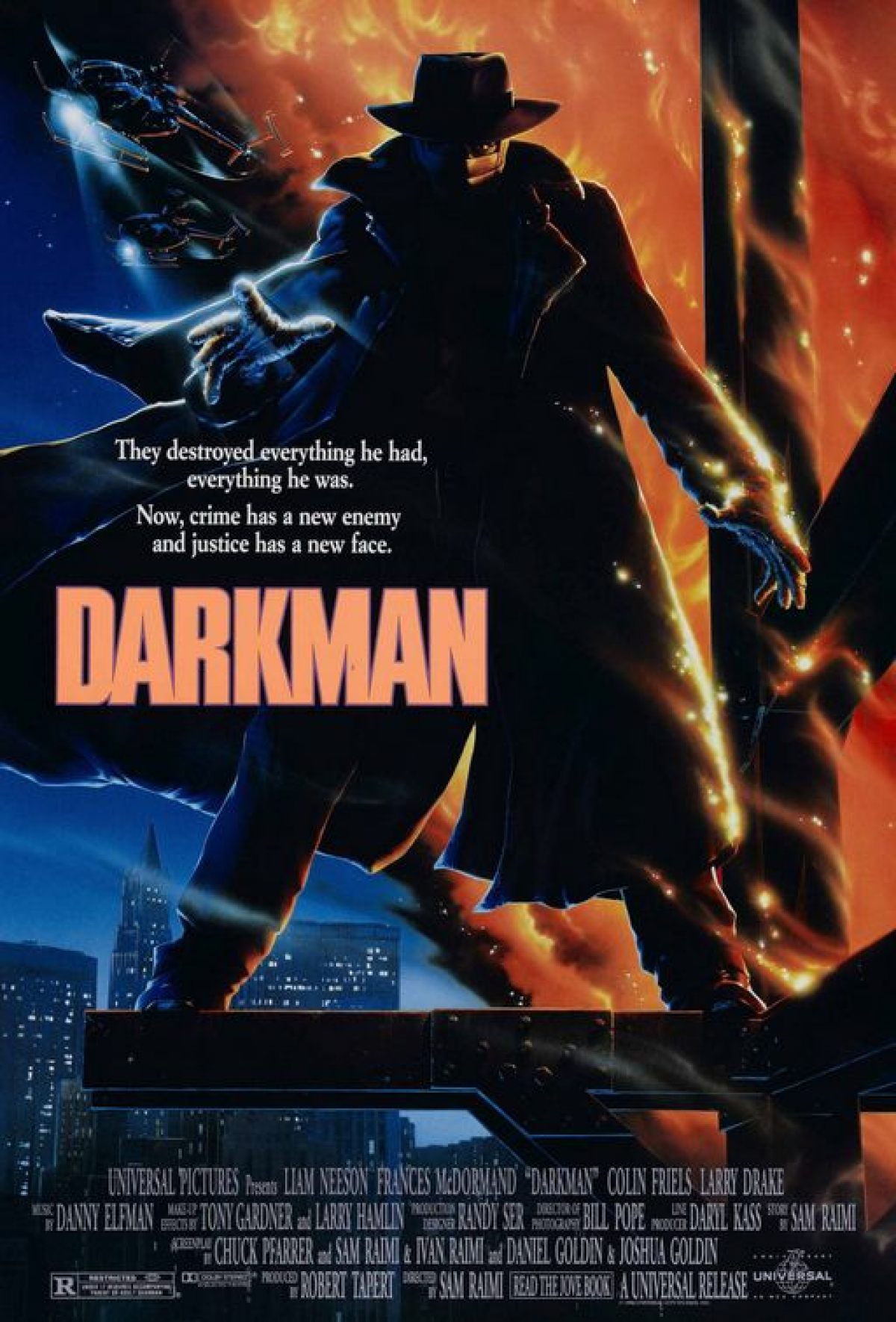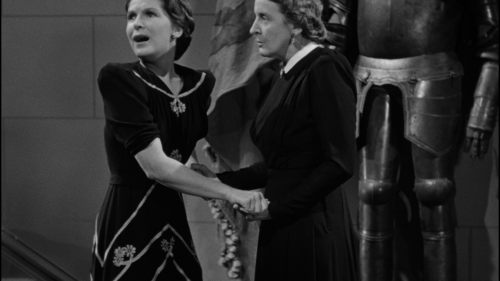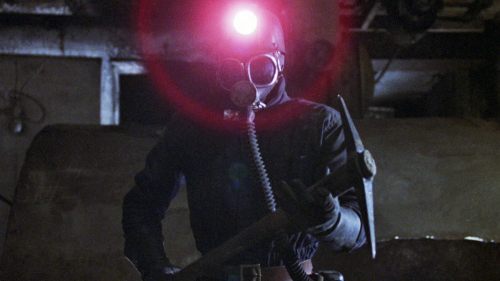The Savage Stack - DARKMAN (1990)
There’s always going to be – for lack of a better term – a stack of films we’ve been meaning to get to. Whether it’s a pile of DVDs and Blu-rays haphazardly amassed atop our television stands, or a seemingly endless digital queue on our respective streaming accounts, there’s simply more movies than time to watch them. This column is here to make that problem worse. Ostensibly an extension of Everybody’s Into Weirdness (may that series rest in peace), The Savage Stack is a compilation of the odd and magnificent motion pictures you probably should be watching instead of popping in The Avengers for the 2,000th time. Not that there’s anything wrong with filmic “comfort food” (God knows we all have titles we frequently return to when we crave that warm and fuzzy feeling), but if you love movies, you should never stop searching for the next title that’s going to make your “To Watch” list that much more insurmountable. Some will be favorites, others oddities, with esoteric eccentricities thrown in for good measure. All in all, a mountain of movies to conquer.
The forty-fifth entry into this unbroken backlog is Sam Raimi's invented superhero horror picture, Darkman...

In 2017 - when we're inundated by the output of the MCU/DCEU on a yearly basis - it's become somewhat difficult to imagine a time when superhero films were not only unprofitable, but practically didn't exist. Comic book properties were mostly relegated to the cinematic ghetto, as companies like Cannon and 21st Century Film Corporation were buying up funny book icons such as Captain America and Spider-Man, and then letting lo-fi genre filmmakers like Albert Pyun and Tobe Hooper take a crack at them. Most of these attempts never saw the light of day, but those that did (such as New World's Dolph Lundgren-fronted Punisher picture), sometimes went straight to video (though that iteration did receive a theatrical release everywhere but the United States). Nobody knew how to sell these stories to a mainstream audience, so studios just didn't try, resulting in a dearth of adaptations that lasted all the way up until the late 90s/early aughts.
So, suffice it to say, when Sam Raimi wanted to make his first superhero film, it wasn't going to be easy. The Evil Dead ('81) cult auteur had to mash up his admiration for Maxwell Grant's pulp serial The Shadow with his undying affection for the Universal Monsters in order to concoct what would ultimately become Darkman ('90). In fact, Raimi's comic book pastiche was a direct result of getting turned down by Universal for the big screen adaptation of The Shadow (which eventually became the '94 Russell Mulcahy movie). A touch scorned, Raimi decided to still write his own take, but then mixed in an added dose of The Phantom of the Opera ('25) and James Cagney's Lon Chaney biopic The Man of a Thousand Faces ('57) for good measure. The result is a distinct product of the '90s action scene that also contains an air of timeless tragic romance, as driven, doomed scientist Peyton Westlake (Liam Neeson) yearns to win back the love of his life (Frances McDormand) after a gaggle of bloodthirsty gangsters blow up his lab, leaving him a disfigured "freak".
Darkman opens following three different iterations of the Universal logo, taking us through the company's branding history as that brilliant blue globe continues to turn. Though its possibly not even intentional, these variations on the massive Hollywood studio's calling card act as a neat metaphor for the way Raimi approaches his invented superman. Throughout the course of Darkman's brisk ninety minutes, we're treated to a hyper-violent bullet fest, a Gothic love shared between a strong woman and a newly minted monster, a mean-spirited '70s vigilante picture, and a love letter to comic books that actually predates the kinetic DIY author's own take on Spider-Man ('02). That's what makes Raimi's movie so special - it's the product of pure imagination, punch drunk on cinema instead of intellectual property. By losing out on the adaptation he wanted to helm so badly, it forced the filmmaker to stretch the limits of his seemingly boundless creativity.
It certainly helps that Raimi recruited Neeson to play the titular man behind the bandages, even though the actor wasn't his first choice (Universal wouldn't let him cast Evil Dead cohort Bruce Campbell, while both Bill Paxton and Gary Oldman auditioned for the role). Nevertheless, looking back at Darkman thirty years on reveals that nobody could've portrayed the mad scientist-cum-avenging madman quite like the instantly recognizable Irish actor, as he was tapping into the high pulp sensibilities he'd become known for decades before the Taken ('09) pictures. Westlake is a rebel - toiling away in a lab trying to perfect a new synthetic skin that could help millions heal from scarring wounds. Yet this new compound won't stabilize past ninety-nine minutes...until a power outage knocks the lights out, causing the flesh to expose it's weakness: the light. "What is it about the dark? What secrets does it hold?" Peyton ponders, and Neeson intones like Claude Rains, searching for his own cure to damaged existence. It's a beautiful moment, as Raimi and Neeson aren't afraid to embrace the material's inherent silliness, while still keeping a fairly straight face.
However, before Peyton can unlock those mysteries, Robert Durant (Larry Drake) and his gang of thugs break in, executing the scientist's assistant before torching his lab. They're there for the Belisarius Memorandum - a document which contains payoffs made by real estate mogul Louis Strack (Colin Freels, basically playing Donald Trump by way of Gordon Gekko). Westlake's strong, lawyer lady, Julie Hastings (McDormand), won't give up the goods to Strack, so he and Durant ensure the paper doesn't see the light of day in the most savage way possible. Westlake's demise is the most heartbreaking moment of superhero transfiguration ever put to screen, as we're forced to watch him propose to Julie (who initially turns him down as she's fine with their relationship as is) before being shot through the roof as a flaming human fireball, screaming like a torched Deadite. Westlake will return - experimental medical treatments granting him the ability to feel no pain - concocting new faces in a rebuilt facility on the outskirts of town. For 99 minutes at a time, Peyton becomes whoever he wants, hunting these ruthless animals while pining for Julie from afar - a four color Dr. Frankenstein, who is also The Monster.
Knowing his comic books inside and out, Raimi realizes that a superhero is no good if you don't have an assortment of colorful villains for them to battle, and Darkman certainly delivers in this department. Drake hams it up as the finger-collecting glorified henchman, and his goons - Pauly (Nicolas Worth), Smiley (Dan Bell), Rick (Ted Raimi), and Skip (Dan Hicks) - are all essentially mere garish prosthetics away from being full-blown Dick Tracy-esque caricatures. When they engage in violence, Raimi stages each set piece with increasing recklessness, smashing cars, blowing up rooftops and having Westlake hang from a helicopter during a climactic chase. It's an ingenious combination of practical stuntwork, blue screen, and genre maven ingenuity, as none of the action has lost an ounce of its thrilling impactfulness (thanks to the combo of Bill Pope's wild cinematography and Danny Elfman's booming score) in the three decades since Darkman was initially released.
Still, no matter how over the top Raimi's movie becomes, its beating heart is still the demolished spirit of Peyton Westlake, as he navigates a crooked path from loving man to ruthless avenger. He may be acting in the name of love for Julie the whole way, and we yearn for the two of them to return to one another's arms, but they simply cannot by the picture's final frame. As fun as it is to watch Westlake dispatch Durant, Strack and every other gun-toting criminal who comes his way, Raimi knows that each act of murder he commits moves Peyton further and further away from the good man he once was. That final elevator scene, where Julie paws at the monster, pleading with him that it's still possible for them to share their old life together, is as devastating as Quasimodo wishing he were made of stone at the end of The Hunchback of Notre Dame ('39). Becuase Raimi knows the soul of the monster is the darkest place of all, and no amount of love can redeem a beast after it's tasted fresh blood. Peyton Westlake may be a hero, but his victories leave him alone, vanishing into a crowd to become everyone and no one, all at once. He is now Darkman forever.
Darkman is available now on Blu-ray/DVD from Scream Factory.



